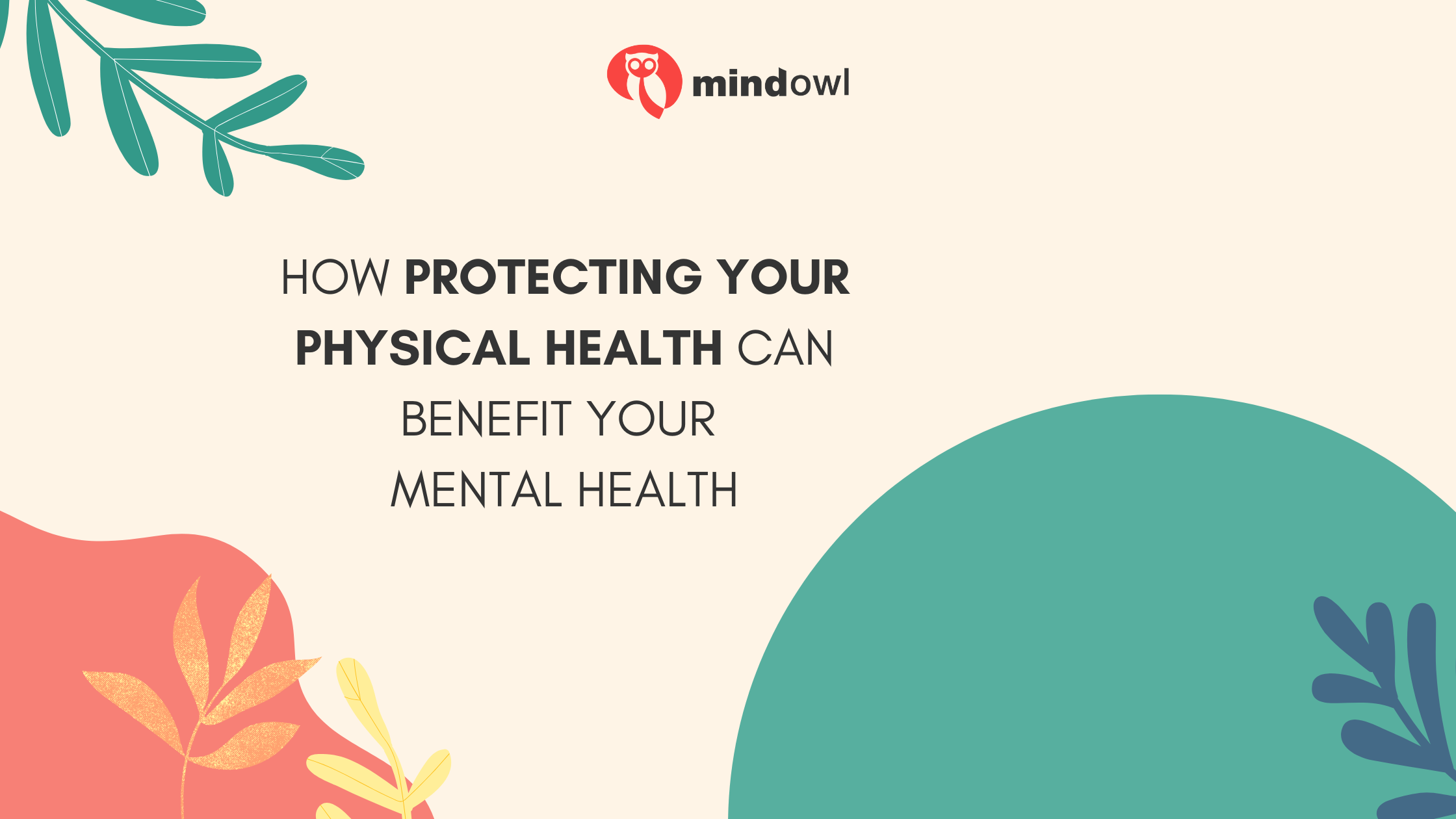
Physical and mental health are deeply interconnected. Taking care of your body can lead to significant improvements in mental well-being, creating a positive cycle that enhances overall quality of life. Many people focus solely on one area of health without realizing how these two domains influence each other. Here’s a look at how prioritizing physical health habits like exercise, nutrition, sleep, and routine checkups can lead to a happier, more balanced life.
A Powerful Mood Booster
Regular physical activity is not just beneficial for physical strength and endurance—it also has a profound impact on mental health. Exercise releases endorphins, often called “feel-good” hormones, which naturally boost mood and alleviate symptoms of anxiety and depression. Studies indicate that engaging in aerobic exercises like walking, jogging, or cycling for as little as 30 minutes a day can reduce stress and improve emotional resilience.
In addition to endorphins, physical activity also reduces the levels of stress hormones like cortisol, helping you handle stress more effectively. Exercise doesn’t have to be rigorous to make a difference; even moderate-intensity activities, such as dancing or swimming, can lead to mental health benefits. For those dealing with chronic mental health conditions, regular exercise can provide a non-invasive way to improve mood and reduce dependence on medication.
Feeding Your Mind
The food you consume has a direct impact on mental health. A balanced diet rich in vitamins, minerals, and antioxidants supports brain function and can reduce symptoms of mental health disorders. Conversely, diets high in processed foods, sugars, and unhealthy fats are linked to higher risks of anxiety and depression.
Nutritional psychiatry, a growing field, highlights how specific nutrients influence mood. For example, omega-3 fatty acids found in fish, nuts, and seeds are known for their positive impact on mental well-being. Complex carbohydrates, like those in whole grains and vegetables, help maintain stable blood sugar levels, preventing mood swings. Additionally, antioxidants in fruits and vegetables protect the brain from oxidative stress, which can harm brain cells and contribute to cognitive decline. Adopting a nutrient-rich diet, even if it involves small changes over time, can be a step toward improved mental health.
The Connection Between Quality Sleep and Mental Health
Sleep is often one of the first things sacrificed in a busy lifestyle, but its impact on mental health is undeniable. Poor sleep quality can exacerbate anxiety and depression, while quality sleep enhances memory, emotional processing, and stress regulation. In fact, inadequate sleep has been linked to increased activity in brain regions associated with fear and anxiety, making it harder to manage stress.
Creating a sleep routine is an effective way to improve both physical and mental health. Sticking to a regular sleep schedule, avoiding screens before bedtime, and ensuring your sleep environment is dark and quiet are simple steps that can improve sleep quality. Good sleep supports the brain’s ability to process emotions and strengthens coping mechanisms, which are essential for maintaining mental balance.
Preventive Health Checks and Their Impact on Mental Peace
Proactively taking care of your health with regular checkups can provide significant mental peace. Knowing that you’re addressing potential health issues early allows for peace of mind, reducing anxiety and worry about possible undiagnosed conditions. Experts from The Hearing Hub explain that routine health screenings, including dental checkups, eye exams, and consultations with local ear-cleaning specialists, can prevent physical discomforts that may indirectly affect mental health. When you’re not distracted by pain or discomfort, staying mentally focused and positive is easier.
Addressing minor health issues as they arise prevents them from escalating into bigger concerns, minimizing both physical discomfort and mental strain. For instance, small but persistent health problems, like hearing difficulties, can lead to isolation and even depression. This is why preventive measures play a crucial role in maintaining a holistic sense of well-being.
Health for the Body and Mind
Physical health efforts often involve some form of social interaction, which is beneficial for mental health. Participating in group exercise, joining a sports team, or simply walking with friends can improve mental well-being by providing a sense of community and support. Social connections stimulate the release of oxytocin, a hormone associated with bonding and trust, which reduces feelings of loneliness and increases overall happiness.
For those dealing with mental health challenges, social interactions can break feelings of isolation. Engaging with others, whether it’s through a fitness class or a shared hobby, also encourages accountability in maintaining healthy routines. Building a support network through shared physical activities is a valuable way to enhance both physical and mental health.
A Natural Stress Reliever
Incorporating mindfulness into physical activities like yoga, tai chi, or even walking can reduce stress and anxiety significantly. Mindfulness focuses on bringing attention to the present moment, helping individuals avoid worrying about the future or dwelling on past regrets. This state of mind allows for clearer thinking and emotional balance.
Mindful movement, such as yoga, offers a dual benefit by enhancing flexibility and strength while reducing cortisol levels and promoting mental calmness. Research suggests that mindfulness exercises can even change brain structure, strengthening areas involved in emotional regulation and cognitive function. Integrating mindfulness into physical activity routines enhances the benefits of both practices, creating a powerful combination for mental well-being.

Reducing Substance Use
Avoiding or minimizing the use of substances such as alcohol, caffeine, and tobacco can play a crucial role in protecting mental health. While caffeine and alcohol may offer temporary relief or a quick energy boost, they can contribute to anxiety, mood swings, and disrupted sleep in the long run. Smoking or consuming high levels of alcohol, for example, has been linked to increased risks of mental health issues like depression.
Reducing substance use is not only a boon for physical health but also helps in creating a more stable emotional state. The cycle of dependency can exacerbate feelings of helplessness or lack of control, adding to anxiety and depression. Finding healthy substitutes, such as herbal teas for caffeine or exercise for stress relief, can help break these habits, benefiting both physical and mental health in the process.
Physical and mental health are interconnected in countless ways, from how we eat and sleep to how we engage with others and care for our bodies. Simple lifestyle changes, such as regular exercise, balanced nutrition, and preventive health care, can lead to improvements in mood, resilience, and overall life satisfaction. Embracing a holistic approach not only fosters physical wellness but also promotes a healthier, happier state of mind.
MindOwl Founder – My own struggles in life have led me to this path of understanding the human condition. I graduated with a bachelor’s degree in philosophy before completing a master’s degree in psychology at Regent’s University London. I then completed a postgraduate diploma in philosophical counselling before being trained in ACT (Acceptance and commitment therapy).
I’ve spent the last eight years studying the encounter of meditative practices with modern psychology.

